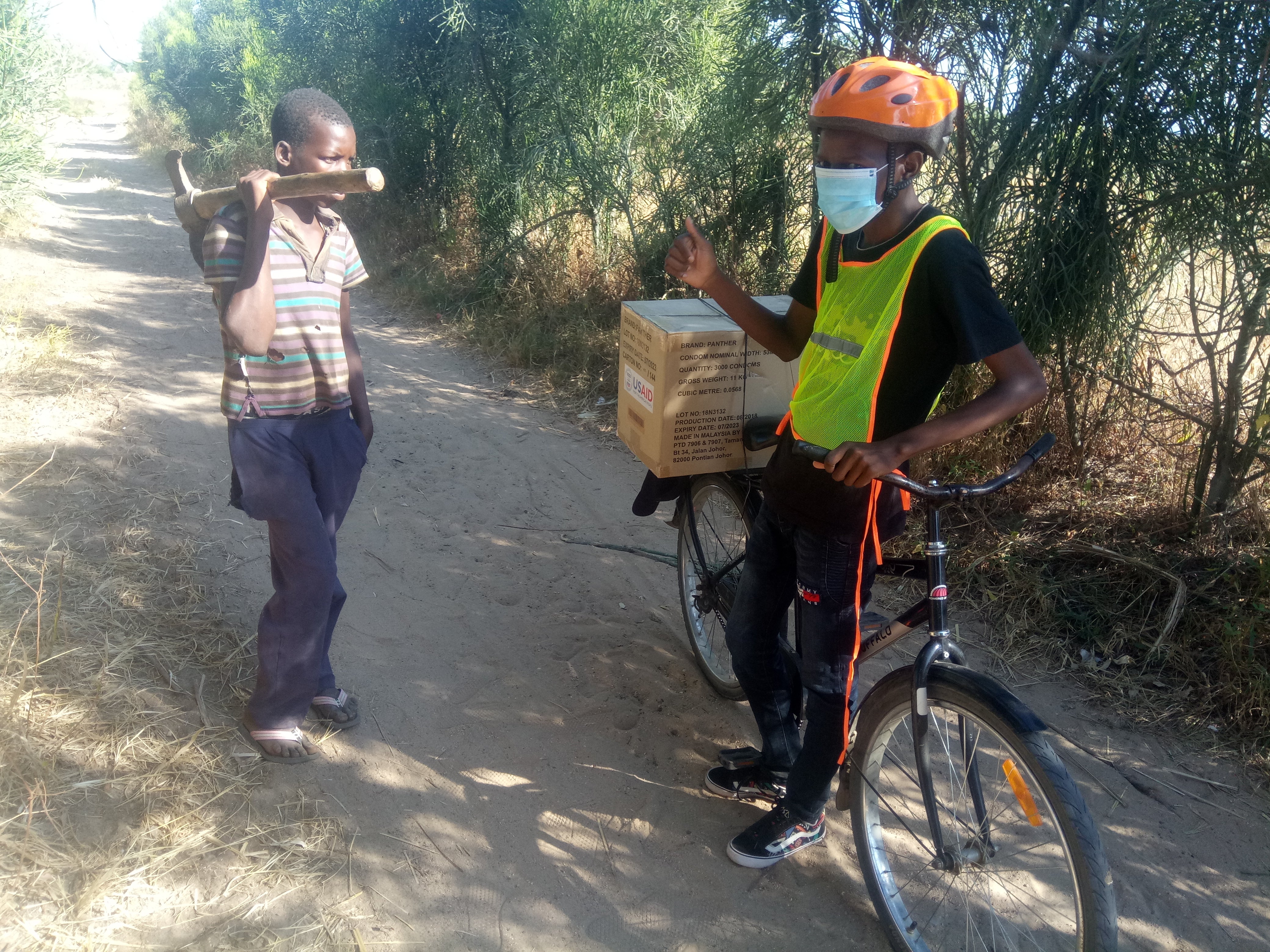Zimbabwe: 23-year-old Luckmore Pamhidzai’s Story
Date of diary session: 8 May 2020
“I lost my appetite, lost weight and I started sleeping abnormal hours because I was really stressed.”
We are currently in the last two weeks of a 49-day continuous lockdown. No new COVID-19 cases were recorded in the past six days and nothing has changed in my situation as I am still locked down alone. To try and stay sane, I’ve joined an e-support WhatsApp group for young people living with HIV in my district. In this group I’ve managed to obtain facts about COVID-19, HIV and sexual and reproductive health and rights (SRHR), emotional support and coping mechanisms. As I gained more knowledge on COVID-19, I realized that I had a problem and I really needed help, and this led me to seek counselling.
This is how I am coping with the pandemic now:
- I am staying connected and maintaining my social networks.
- I am keeping my personal daily routine.
- During times of stress, I pay attention to my own needs and feelings.
- I exercise regularly, keep my regular sleep routine and eat healthy food.
- I seek information updates and practical guidance at specific times from health professionals to avoid listening to or following rumours that make me feel uncomfortable.
- I made sure I have my ARVs for the next six months and I know in advance where and how to get practical help if needed, like requesting medical care (integrated SRHR and HIV youth-friendly services).
There is a lack of access to health-care services, especially on SRHR and commodities such as condoms and contraceptives, psychosocial support and mental health services due to the closure of youth-friendly health facilities in my locality, where I used to access those services and mobility. There is scarcity of transport services to ferry me to the district hospital, which is 20 kilometres away.

- Luckmore Pamhidzai.
However, I have been engaged in sensitizing youth in my rural community on COVID-19 prevention strategies, transmission of sexually transmitted infections (STIs) including HIV and unintended pregnancies, targeting adolescents and young people, distribution of SRHR commodities (condoms) to sexually active youths, ART adherence monitoring and support, and provision of psychosocial support and mental health services to young people living with HIV in my rural community where we have limited access to the Internet, radio stations and television.
Work and school situation
As a student doing a degree in Social Work, I’ve chosen to use this time to complete all my assignments and projects. I am also a Community Adolescent Treatment Supporter from AfriAid Zvandiri, so I am connecting with my clients using my personal mobile phone (texts, calls, WhatsApp) providing psychosocial support, mental health screening, adherence support and monitoring, as well as clinical and non-clinical referrals and TB screening.
During this time, I really miss our quarterly meetings of the Young People's Network on Sexual and Reproduction Health, HIV and Aids (YPNSRHHA), CATS Coordination Meetings, Provincial AIDS Action Committee Meetings, SRHR Provincial and National Forums, YPNSRHHA trainings, and the International and Regional SRHR and HIV Forums. These are all platforms where I am kept fully equipped for my community and advocacy work.
So, the first thing I’ll do after all of this is over will be to count all my relatives to see if they are still alive. The continued lockdown made my life difficult and it increased my mental health problems. My anxiety also rose due to fears about COVID-19, and I was uncertain about the future. I was depressed just because I’m closed in, living in a difficult situation where I feel discriminated against, poorly treated and hopeless about my future.
My greatest fear was that I would die from other ailments other than COVID-19 as too much concentration was being placed on this new pandemic.
I also had a lot of questions in my mind. How am I going to reach my health centre for my ARVs? Where am I going to access SRHR services and commodities since youth-friendly centres in my locality were closed due to the COVID-19 pandemic?
Even during this pandemic, I am still very grateful for multi-month dispensing of ARV treatment for up to six months. This has reduced transport expenses and increased our confidence. We now know our health is safe.
My advice to other young people is to safely observe lockdown regulations and do everything the health authorities say. Know who the service providers are in your community, if possible, and make sure you have their phone numbers. Eat healthily, stay healthy, avoid unnecessary movements and practice physical distancing.
About the #YouthAndCovid19 Series
The UNFPA East and Southern Africa Regional Office through its flagship programme for youth, the Safeguard Young People programme, has been engaging with young people in the region to find out how they are coping with the current COVID-19 pandemic. The aim of the project is to share best practices among the youth and to expose them to the many interventions and responses to COVID-19 that UNFPA and its partners have put in place during this time.
To share your story, click here.
- Lindiwe Siyaya


